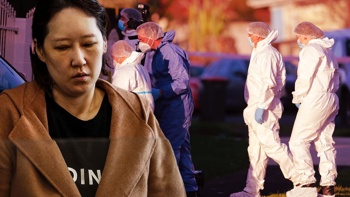A total of 19,215 Covid cases have been reported in New Zealand in the last week.
Of that total, more than a third - 7795 - were reinfections.
There have also been another 57 deaths of people with Covid.
Three of the deaths were from Northland, 19 were from the Auckland region, seven were from Waikato, six were from Bay of Plenty, two were from Lakes, three were from Hawke’s Bay, one was from Taranaki, three were from MidCentral, one was from Whanganui, three were from Wellington region, one was from Nelson Marlborough, seven were from Canterbury, one was from Southern.
One was less than 10 years old, one was aged between 10 and 19 years, two were in their 30s, three were in their 40s, seven were in their 50s, six were in their 60s, 14 were in their 70s, 16 were in their 80s and seven were aged over 90.
L.A.B’s Summer Tour began at Tauranga’s Wharepai Domain with a sellout crowd of concertgoers. Photo / Sandra Conchie
There were 333 people in hospital with Covid, nearly 100 fewer than last week.
The rolling daily average of new cases was 2738, down from 2996 last week.
The latest wave of Covid is now well past its peak and numbers are expected to keep falling for at least a month, experts said.
- Watch: 'Not out of the woods' - Covid summer wave may hit 11k cases a day
- Holiday hotspots gear up for city slickers, Covid cases soar
- Covid-19: Beware the Christmas Grinch
However, there are still risks on the horizon, including the reopening of schools and new, more transmissible variants from overseas.
There were 1514 Covid infections reported yesterday, the lowest in three months.
David Welch, from the University of Auckland’s Centre for Computational Evolution and School of Computer Science, said the current Covid wave peaked in mid-December - around 8400 infections a day.
There had been a steady decline in cases since then, some of which could be a result of under-reporting during the holiday period.
But hospitalisations, which were a more reliable indicator, were also tracking downwards. Last week the ministry reported 422 people were in hospital with Covid, down from a peak of around 740.
“We’re very clearly past the peak, and we’re sort of halfway down the other side,” Welch said. “I don’t think we’ve we haven’t had the trough yet. So cases are still probably declining and are probably less than half of what they were at the peak.”
The Christmas-New Year holiday period did not lead to a big lift in cases or any super-spreading events, possibly because most large events were outdoors, he said.
Children would return to school at the beginning of February, potentially creating risks of infection.
But Welch said he expected infection numbers to keep falling and remain low for the rest of January and February.
“I would expect that we will probably hit a bit of a plateau, and then either as immunity is lost within the population, or if a new variant comes along, that would be the thing that pushes another wave up.”
He said one of the latest Omicron strains, XBB 1.5 (nicknamed the Kraken) did not appear to be growing quickly in New Zealand yet.
The strain was believed to be more transmissible and able to evade protection from vaccines and former infection.
The World Health Organisation (WHO) has labelled the strain as “the most transmissible sub-variant that has been detected yet,” with XBB. 1.5 causing large numbers of infections in the US. It’s also been detected in Australia, the UK and several European countries including Denmark, France, Germany and Spain.
The sub-variant was first detected in New Zealand via genome sequencing last week.
Last week, a total of 21,685 cases were reported, a third of them reinfections.
There were also 53 deaths reported and 422 people had been hospitalised, including nine in intensive care.
Take your Radio, Podcasts and Music with you

/cloudfront-ap-southeast-2.images.arcpublishing.com/nzme/5TEZDNM27ZA67AIRVXBG4HNQEY.JPG)








